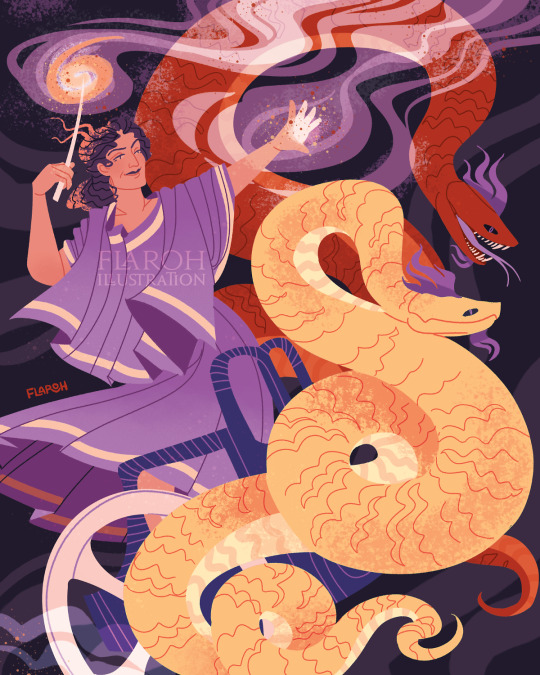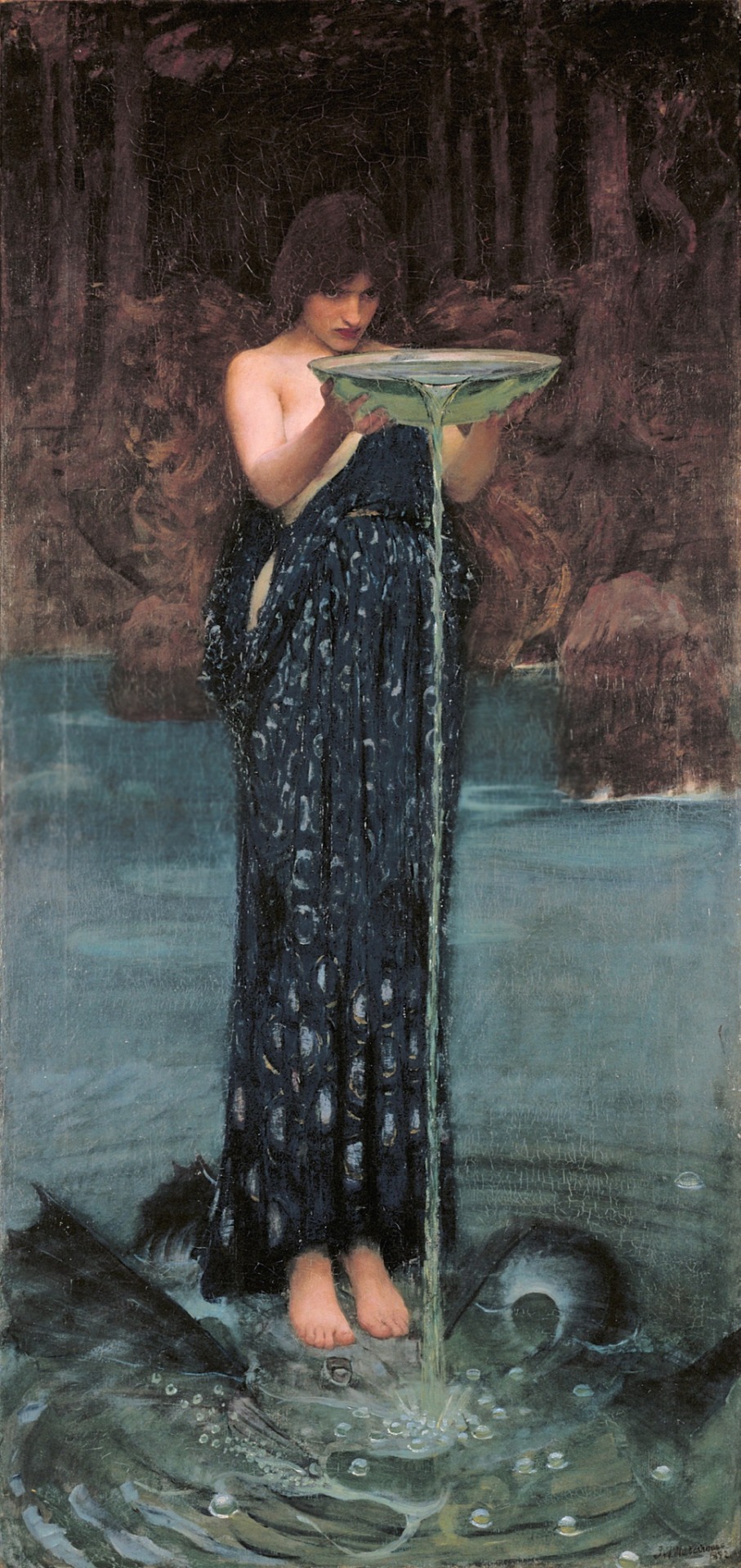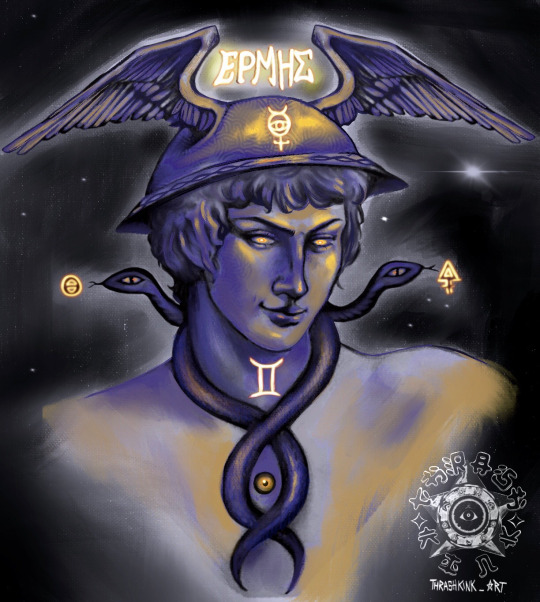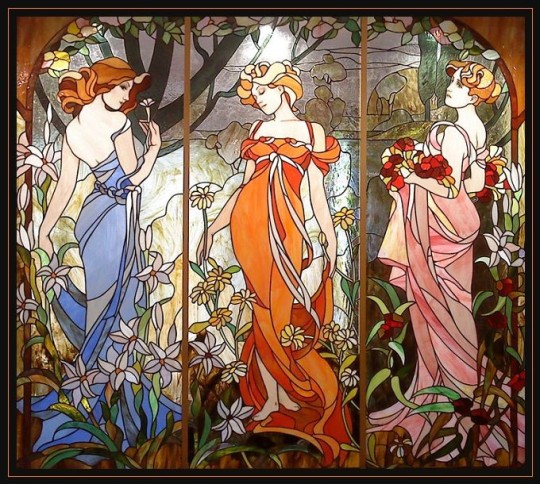#ancient witchcraft
Text

#for real#dream girl#in your dreams#warning#witchy woman#witch#indigenous#ancient witchcraft#witchcraft#demons#woods#forest#hedgewitch#medicinewoman
57 notes
·
View notes
Text










#whimsigothcore#whimsigothic#whimsigothaesthetic#gothic#whimiscal#whimisgoth#whimsy#ancient mosaic#mosaique#vintage#witchlife#witchythings#witchcore#witchcraft#nature witch#home deocr#home design#decor aesthetic#vintage decor#art deco#whimsygoth#witch#witch blog#witch aesthetic#whimsigoth fashion#colored art#colored glass#stained glass#glassart#aesthetic
37K notes
·
View notes
Text
altars for greek gods
this post includes hades, persephone, artemis, apollo, aphrodite, hermes, and hekate. for part 2 including zeus, hera, poseidon, hestia, hephaestus, dionysus, ares, demeter, and athena click here.
keep in mind that typical offerings to any god includes meat, wine, grain (specifically barley), honey, and incense (myrrh and frankincense would be period appropriate), but i'm listing some specific offerings that can be given if you'd like
colors can be used for candles, banners, decor, whatever you want
HADES
Colors: black, red, and white for association with death. purple and metallics for association with riches/wealth
Offerings: mint, asphodel, white poplar, pomegranate, coffee, cinnamon, elm, money, chocolate
Crystals: gemstones, black crystals (obsidian, black tourmaline, smokey quartz, etc.), pyrite, hematite, labradorite
Animals: black ram, owl, serpent, Cerberus
PERSEPHONE
Colors: purple, pink, yellow, green for association with springtime. black and metallics for association with Hades. white for purity.
Offerings: pomegranate, flowers, grains, asphodel, lavender, rosemary
Crystals: amethyst, gemstones, moss/tree agate, milk quartz, jade, lepidolite
Animals: deer, ram, bat, talking birds (including parrots)
APHRODITE
Colors: red and pink for love/sexuality. white and blue for association with the ocean. gold for association with, well, gold.
Offerings: roses, chocolate, shells, myrrh, gold
Crystals: rose quartz, pearl, emerald, opal, aquamarine, rhodonite, rhodochrosite, ocean jasper, morganite
Animals: swan, dove, hare
ARTEMIS
Colors: white, blue, black, and grey for association with the heavens. brown and green for association with nature/the hunt.
Offerings: moon shaped foods, frankincense, cypress, mugwort, amaranth
Crystals: morganite, moonstone, aventurine, selenite, celestite, moss/tree agate, amethyst, quartz (specific dendritic), labradorite
Animals: deer, wolf, wild boar
APOLLO
Colors: yellow, white, and blue for association with the heavens. red, orange, and pink for healing. purple and green for the Oracle
Offerings: sun shaped foods, bay leaves, laurel, cypress, playing music, poetry
Crystals: sunstone, amber, calcite (specifically honey and yellow), quartz (specifically rutilated or clear), rose quartz
Animals: cow, snake, hawk, crow/raven, cicada, swan
HERMES
Colors: green and gold for money/luck. white and brown for travels.
Offerings: money, crocus/saffron, strawberries
Crystals: jade, malachite, fluorite, pyrite, lapis lazuli, citrine, alexandrite
Animals: tortoise, ram
HEKATE
Colors: purple, blue, and green for magic. red and black for association with underworld
Offerings: garlic, saffron, crossroad dirt, black salt, ashes, sage, cedar, yew
Crystals: labradorite, obsidian, hematite, black tourmaline, amethyst, bloodstone, serpentine, lepidolite
Animals: wolf, boar, serpent, lion, horse, cow
#pagan#paganism#polytheist#witchblr#witchcraft#polytheism#witch#magic#magick#ancient greece#hellenic paganism#hellenic polytheism#hellenic pagan#hellenic deities#hellenic gods#greek polytheism#greek mythology#greek gods#ancient greek mythology#ancient greek#altar#deity#deity work#deity worship#hades#persephone#artemis#aphrodite#hermes#hecate
2K notes
·
View notes
Text
Hot take, apparently, but genuinely harassing or insulting anyone's religion is not ok.
Criticizing religious institutions, proselytizing, extremism, or horrible behaviors/beliefs done in the name of a religion? YES! Totally. That should be criticized.
Unpromptedly popping up on random posts by religious folks to say anything along the lines of "god isn't real", "the pagan gods are fake", "there is only one true religion", "[any religious group] are stupid/dangerous/barbaric" -- NO.
It's rude. It's unnecessary. And sometimes, especially in the case of minorities or oppressed groups, it's outright hateful. Theres nothing helpful, funny, or cool about randomly insulting one of the most personal aspects of a persons life. Unless it's invited or warranted, stfu.
#like please stop randomly telling me my gods dont exist#idc#atheist#christian#pagan#paganism#pagan witch#christian witch#evangelical#heathenry#witchcraft#deities#deitywork#ancient gods#religion#religious#religious joy#pagan joy
1K notes
·
View notes
Text
Regulus always wanted tattoos to look like his cool older brother, who says he will get his first one at 16
Regulus also got his first one. At 16. Just like his older brother. But he no longer approves. I guess the forearm isn't a good place to have your first tattoo
#marauders#dead gay wizards#hogwarts school of witchcraft and wizardry#marauders era#sirius black#regulus arcturus black#sirius and regulus#regulus black#r.a.b#most noble and ancient house of black#house of black#the black brothers#death mark#harry potter
437 notes
·
View notes
Text

The Birth of Venus— Souter (1890)
#renaissance art#renaissance#birth of venus#sirencore#lana del rey#sirens art#siren aesthetic#siren#mermaidcore#mermaid artwork#mermaid aesthetic#ancient greek#greek mythology#greek gods#aphrodite#goddess#magick#magic#witches of tumblr#witchcraft#sea witch#witch aesthetic#witchcore#weirdcore#art of tumblr#mermaid art#artists on tumblr#traditional art#esoteric#mysticism
432 notes
·
View notes
Text

Classicstober Day 6: Medea 🐉🪄
#tagamemnon#flaroh illustration#classicstober#classicstober23#ancient history#medea#witch character#euripides#ancient magic#history of witchcraft#witchcore
619 notes
·
View notes
Text

‘Circe Invidiosa’ 1892
John William Waterhouse
#art#1800s art#romantic era#romanticism#circe#witchcraft#Scylla#water#sea monster#greece#ancient myths#ancient greece#ancient history#art history#oil on canvas#oil painting#john william waterhouse
987 notes
·
View notes
Text


Some visual notes on Find Familiar rituals for my hexblood witch boy Victoro <3
#find familiar#rituals#victoro di terzo#hexblood#cure of strahd#she is the ancient#dnd#witchcraft#skull#bones#kooksart
1K notes
·
View notes
Text
The Spell to Make Your Wish Come True
“Yadas scolyah Sacul snuycale ynocaj aiahisah oniniey, pes, satitca enrab dul ynenod aye ubei eur, ahav, ailaiv, eye. Eiv ayhah oyah ayas anlas iahah, icuc ayay. Lehenele, an anev; autes.”
1) Memorize the orison.
Ancient orisons are powerful not simply because they are in Latin or in another old language. They draw their power from all the witches throughout the centuries who have used them.
Memorize this letter for letter, punctuation per punctuation. Note which words are capitalized and which are not. You are not allowed to copy it. You have to know it by heart.
2) Acquire a new journal.
The smallest you can find. Make sure its materials are natural and that its pages are not lined.
Using a pencil, write your wish on the very first page. Make it succinct but specific. Erasures and corrections are not allowed. They show weakness of intention. If you make a mistake, obtain another journal.
3) Write down the orison.
The next day, when you wake up, the first thing you must do – before peeing, drinking water, brushing your teeth or praying – is write down the orison on the second page. Again, no mistakes.
Do the same the next day, and the one after that. Always write on a new page. Do it for as many days as the number of words you used in your wish. If your wish is, “I wish to get married before my 21st birthday”, then you must do it for nine days.
4) Burn the journal.
Once you are finished, wait for a night when the moon is a waxing crescent, and burn the journal in your front yard. Not in your backyard. You want it in your future, not to leave it in the past.
Collect the ashes in a jar.
5) Cook your favorite meal.
Immediately after, cook your favorite meal. Add all the ashes in. Serve the meal on a silver platter and place it in your front yard, exactly where you burned your journal. This is your payment to whoever old one read your wish as you burned it.
If by sunrise, the platter has ants, worms or other insects in it, as well as signs of having been touched, then your payment was accepted and your wish will be granted. If not… if it looks just as you left it… it means greater powers interfered. Your wish is simply not destined.
#Ancient spells#Traditional spells#Spells#Witch tips#servantofthefates#Witchblr#Traditional witchcraft#All About Spells
205 notes
·
View notes
Text

A piece of art for Lord Hermes, God of Gemini and Mercury. May he aid us in all of our journeys, whether they be big or small.
You can see more of my art on Instagram @thrashkink_art ! :)
#witchcraft#magick#occultism#witch community#demonology#pagan#paganism#witch aesthetic#witchblr#grimoire#hermes#ancient greek#greek mythology#mercury retrograde#hermes deity#occult art#hellenic polytheism#art
331 notes
·
View notes
Text

förēst ōräclë .:::. @roseeadsdesign
source
#nature#Fern#Forest#forestcore#forest nymph#trees#ancient#natureblr#Crystal#crystals#photography#abstract photography#dark academia#dark cottagecore#spiritual#spirituality#witchcraft#earthcore#earth energy#energy#earth activation#35mm film#35mm#grainisgood#green aesthetic#magick#magic#spiritualpath#spiritualguidance#greenery
453 notes
·
View notes
Text
greek god epithets (pt.2)
this post includes hades, persephone, aphrodite, hermes, apollo, artemis, dionysus, and hekate. for part one including zeus, hera, demeter, ares, athena, poseidon and hephaestus click here
HADES:
-PLOUTON= of wealth
-THEON CHTHONIUS= god of the underworld
-POLYSEMANTOR= ruler of many
-POLYDEGMON/POLYXENUS= host of many
-NECRODEGMON= receiver of the dead
-NECRON SOTER= savior of the dead
-ADESIUS= of grace
-STYGIUS= from the Styx
-URAGUS= of fire
-NIGER DEUS= the black god
PERSEPHONE:
-CHTHONIA= of the earth
-CARPOPHORUS= bringer of fruit
-SOTEIRA= the savior
-MEGALA THEA= the great Goddess
-HAGNE= the pure/holy one
-DAEIRA= the knowing one
-PRAXIDICE= the exacter of justice
-PROTOGONE= the first born
-BRIMO= the dreaded/vengeful
APHRODITE:
-URANIA= of heavenly/divine love
-PANDEMOS= common to all people
-MACHANITIS= the diviser/contriver
-EPISTROPHIA= she who turns to love
-CALASCOPIA= the spying/all seeing
-PSITHYRISTES= the whispering
-PRAXIS= of sexual action
-MELAENIS= the black
-SYMMACHIA= the ally in love
-APATURUS= the deceptive one
-NYMPHIA= the bridal
-MIGONTIS= of unions
-DORITIS= the bountiful
-MORPHO= of shapely form
-AMBOLOGERA= the postponer of old age
-NICEPHORUS= the bringer of victory
-EUPLOEA= of fair voyages
-HOPLISMENA= the armed
-AREIA= the warlike
-PONTIA= of the sea
-LIMENIA= of the harbor
-XENIA= of hospitality to foreigners
-PHILOMIDES= the laughter loving
-APHROGENEIA/APHROGENES= the foam born
-PHILOMMEDES= the genital loving
-CHRYSEA= the golden
-DIA= the golden/shining
-POTHON MATER= the mother of desire
-EUSTEPHANUS= the richly crowned/the well girdled
-EN KIPIS= of vegetation/agricultural fertility
HERMES:
-EPIMELIUS= keeper of the flocks
-OEOPOLUS= the shepherd
-AGORAEUS= of the market place
-DOIUS= of crafts/wiles
-ENAGONIUS= of the games
-PROMACHUS= the champion
-HERMENEUTES= the interpreter/translator (of the gods)
-TRICEPHALUS= the three headed
-DIACTORUS= the guide/messenger
-ATHANATUS DIACTORUS= the immortal guide
-ANGELUS MACARON/ANGELUS ATHANATON= messenger of the divine
-CHRYSORRHAPIS= of the golden wand
-CLEPSIPHRON= the deceiver
-MECHANIOTES= the trickster/contriver
-PHELETES= the thief/robber/rustler
-ARCHUS PHELETEON= leader of robbers/thieves
-POECILOMETES/POLYTROPUS= the wily
-DAIS HETAERUS= comrade of the feast
-CHARIDOTES= giver of joy
-CHARMOPHRON= the glad-hearted
-DOTOR EAON= giver of good things
-ACACETA= the guileless/gracious
-EUSCOPUS= the keen sighted/watchful
-CYDIMUS/ERICYDES/AGLAUS= the glorious/famous/splendid
-CRATUS/CRATERUS= the strong/mighty
-POMPAEUS= the guide
APOLLO:
-THEARIUS= of the oracle
-PROUPSIUS= the foreseeing
-CLERIUS= of distribution by lot
-CLEDONES= of omens
-HECATUS= the shooter from afar/the archer
-AGRAEUS= of the hunt/the hunter
-MUSAGETES= the leader of the Muses
-ULIUS= of good health
-PAEON= the healer
-ACESIUS= of healing
-ALEXICACUS= averter of evil/harm
-EPICURIUS= the succoring/helping
-BOEDROMIUS= the rescuer
-LYCIUS= of the wolves
-SMINTHEUS= of the mice
-DELPHINIUS= of the dolphin
-ACTIUS= of the foreshore
-THEOXENIUS= the god of foreigners
-ARGYEUS= of streets/public places/entrances to homes
-VIROTUTIS= the benefactor of humanity
ARTEMIS:
-AGROTERA= of the hunt
-PHERAEA= of the beasts
-ELAPHAEA= of the deer
-DAPHNAEA= of the laurel tree
-CEDREATIS= of the cedar tree
-CARYAE/CARYATIS= of the walnut tree
-LIMNAEA/LIMNATUS= of the lake
-HELEIA= of the marshes
-EURYNOME= of broad pastures
-LYCAEA= of the wolves
-LEUCOPHRYNE= of the white (bird)
-PAEDOTROPHUS= the nurse of children
-PHILOEIRAX= the friend of young girls
-ORSILOCHIA= the helper of childbirth
-SELASPHORUS/PHOSPHORUS= the light bringer
-SOLEIRA= the saviour
-HEMERASIA= she who soothes
-HYMNIA= of the hymns
-HEGEMORE= the leader of dances/choir
-ARISTE= the best/the excellent
-EUCLEIA= of good repute
-CALLISTE= the very beautiful
-BASILEIS= the princess
-HIEREIA= the priestess
-HEURIPPA= the horse finder
-PEITHO= the persuasive
-PYRONIA= of the fire
DIONYSUS:
-BROMIUS= the noisy/boisterous
-MAENOLES= the mad/raging
-NYCTELIUS= of the night
-LAMPTERUS= of the torches
-HESTIUS= of the feast
-PHALLEN= the phallic
-ANDROGYNUS= the androgynous (of sexuality, he bed all genders)
-PHLEON= the luxuriant
-STAPHYLITES= of the grape
-OMPHACITES= of the unripe grape
-LENAEUS= of the wine press
-THEOENUS= the god of wine
-AGATHUS DAEMON= the good spirit (as in a ghost, not a drink)
-OENOPS= the wine-dark
-ACRATOPHORUS= the bringer of mixed wine
-CISSEUS= of the ivy
-CITIOPHORUS= the ivy bearer
-ANTHION= of the flowers
-CISTOPHORUS= the basket bearer
-DIMETOR= twice born
-IRAPHIOTES= the goat child
-AEGOBOLUS= the goat slayer
-MELANAEGIS= of the black goat-skin
-ANTHROPORRAESTUS= the man slayer
-LYSIUS= of release
-ELEUTHEREUS= of liberation/freedom
-PSILAX= uplifted on wings
-SAOTES/SOTERIUS= the savior
-AESYMNETES= the dictator
-POLITES= the citizen
-MYSTES= of mysteries
-CHTHONIUS= of the earth
-MELPOMENUS= the singer/of the tragic plays
HEKATE:
-BRIMO= the dreaded/the vengeful
-CHTHONIA= of the earth
-DESPOINA= the goddess/our lady
-ENODIA= of the crossroads
-AENAOS= the eternal/the ever loving
-AGLAOS= the beautiful/the bright
-APOTROPAIA= the one that protects
-EROTOTOKOS= the bringer of love
-INDALIMOS= the beautiful
-KLEIDOUCHOS= the keeper of the keys of Hades
-KOUROTRPHOS= the nurse of children
-PHOSPHOROUS/LAMPADEPHOROUS= the bringer/bearer of light
-SOTERIA= the savior
-TRIMORPHE- the three formed
-TRIODIA/TRIODITIS= she who frequents crossroads
#pagan#paganism#polytheist#witchblr#witchcraft#polytheism#witch#magic#magick#ancient greece#hellenic pagan#hellenic polytheism#hellenic polythiest#hellenic deities#hellenic gods#hellenism#hellenic paganism
1K notes
·
View notes
Text






#whimsigothcore#whimsigothic#whimsigothaesthetic#gothic#whimiscal#whimisgoth#whimsy#ancient mosaic#mosaique#vintage#witchlife#witchythings#witchcore#witchcraft#nature witch#home decor#home design#decor aesthetic#vintage decor#art deco#whimsygoth#witch#witch blog#witch aesthetic#whimsigoth fashion#colored art#colored glass#stained glass#glassart#aesthetic
2K notes
·
View notes
Text
The first time I read the Harry Potter books I was 7, and so I read them in Russian. Despite the HORRIBLY translated edition that I read (Maria Spivak), where Hagrid is Ogrid and Madam Hooch is Madam Samogoni, which directly translates to "Madam Moonshine".
But some names were unchanged, like Harry and James and Sirius etc, but what I wanna talk about is Regulus. He was still Regulus Arcturus Black.
Р.А.Б., read "R-A-B", same as in English.
The thing is, if not for the fullstops, it would be an another word that exists in Russian - раб, directly translating to "slave".
And I laughed at this when I was young, at the pun that this made. But now that I think about it, it makes sense
Regulus was sort of a slave in the Black household. In terms of ideals and beliefs that his parents imposed. He got sorted into Slytherin, he became a death eater, he obeyed his parents and in the words of Sirius was "a better son than him". Regulus also defended Kreacher from Voldemort, and Kreacher was also, essentially, a slave in the household.
So yeah, just something to think about
#marauders#dead gay wizards#hogwarts school of witchcraft and wizardry#marauders era#sirius black#regulus black#sirius and regulus#most noble and ancient house of black#house of black#walburga black#orion black#hocrux#voldemort#wizarding world#first wizarding war#russian#harry potter#kreacher#house elves
151 notes
·
View notes
Text



Duloe Stone Circle- Kernow
#stone circle#stone#monolith#neolithic#history#ancient history#pagan#occult#magick#magic#druid#druids#witchcraft#folklore#folk horror#witch#duloe stone circle#myth#legend#cornwall#kernow#celtic#celts
292 notes
·
View notes